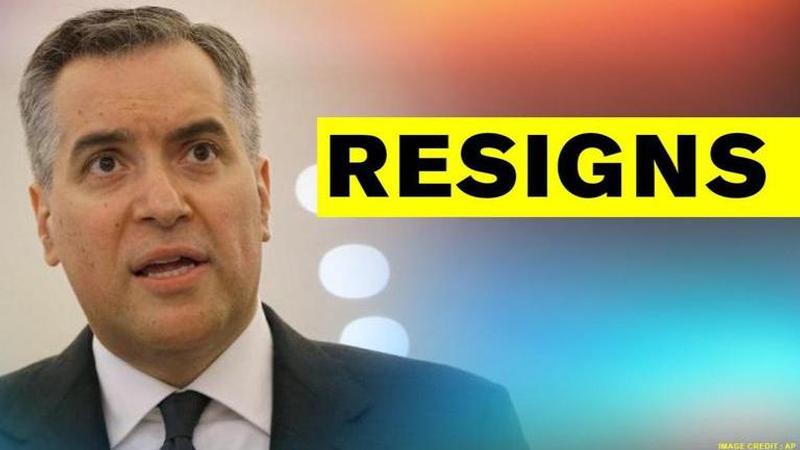Published 19:24 IST, September 26th 2020
Lebanon's PM designate Mustapha Adib steps down over cabinet formation dispute
Lebanon’s prime minister-designate Mustapha Adib has announced his resignation on Saturday, September 26, after he failed to form a government.

Lebanon’s prime minister-designate Mustapha Adib has announced his resignation on Saturday, September 26, after he failed to form a government following a dispute that arose over naming ministers in the new cabinet. As per Associated Press, Mustapha on Saturday after meeting with President Michael Aoun announced on live television that he was stepping down from the position.
Mustapha, a former diplomat was chosen on August 31 to form the next government in Lebanon after former PM Hassan Diab stepped down following explosions that rocked Beirut on August 4.
Mustapha was reportedly facing pressure from Hezbollah and Amal movement, both Shi'a parties, to name Shi'a ministers in the cabinet. Mustapha was appointed after the French government and the international community put pressure on Lebanon's ruling elite to bring reforms in the country's politics and urged them to move away from sectarianism.
French President Emmanuel Macron's office called it a "collective betrayal" by the political parties of Lebanon. The European Union had earlier said that the second phase of aid to the country would not be released until a credible government is formed.
Lebanon's politics
Lebanon is not an ordinary democracy as the country is divided into religious lines and so are the public offices. Following the civil war in Lebanon, the warring factions agreed to a pact that divided the seats in the parliament on the basis of religions and sects, including the top three positions of the President, the Prime minister, and the Speaker of the House. The President in the country should be a Maronite Christian, PM should be Sunni Muslim and the Speaker should be a Shi'a Muslim as per the pact.
Lebanon was already suffering from a massive economic crisis before the Beirut blast shook the country, killing nearly 200 people and injuring thousands of others. The blast brought the incompetency among officials and politicians under the spotlight and set off protests across the nation. The international community too joined in the people of Lebanon in demanding reforms following which the government resigned. However, with the latest development, reform seems a far-sighted idea now in Lebanon.
Updated 19:24 IST, September 26th 2020




